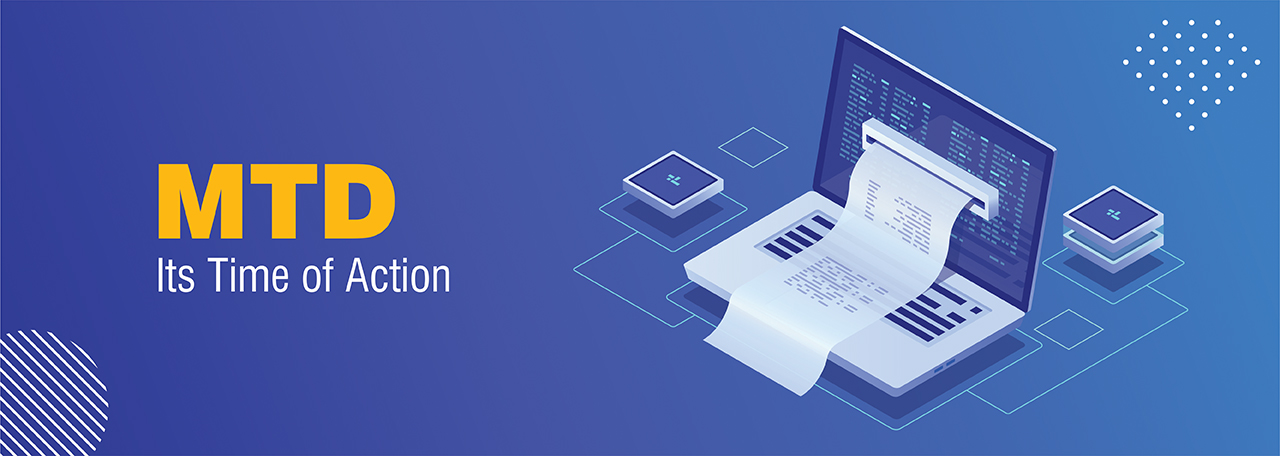Association of Certified Digital Accounting Professionals (ACDAP) is already working for MTD and preparing Accountants and Bookkeepers for Making Tax Digital (MTD) which is the largest transformation in UK VAT legislation in current history that from 1 April 2019, businesses/entities with a taxable turnover above the VAT threshold (currently £85,000) will be required to submit VAT returns through functional compatible software. Your clients will be obligated to keep digital records of their accounts, which will impact how you service their bookkeeping requirements.
ACDAP qualifications are internationally recognised, meeting the needs of employers, government and learners, both now and in the future for the purpose of the digitisation of accounts. ACDAP qualifications equip learners with real work scenarios for all accounting practices including digital accountancy & the MTD. ACDAP’s goal is to provide valuable solutions and training programmes to evolve the accounting profession for MTD’s purposes.
Role of Accountants
ACDAP knows that there are accountants and bookkeepers with deep-rooted plans in place for how they will get their clients prepared for Making Tax Digital (MTD). 89% of UK businesses finding an alternate way they currently file their VAT returns via the HMRC gateway, the size and urgency of the challenge is significant. As per understanding of ACDAP, the VAT-registered businesses need to use what HMRC calls “functional compatible software” to keep digital records for VAT purposes and file VAT returns if their accountant doesn’t do so. Certain types of VAT-registered businesses – around 3.5% of the total – have a deferred MTD for a VAT start date of October 2019, while some VAT-registered businesses can opt-out of MTD for VAT, but only according to specific and unusual circumstances as mentioned below:
About the VAT
The government has published VAT Notice 700/22 to explain most details about MTD for VAT and it should be considered required reading for accountants. Non-VAT registered businesses are not yet affected by Making Tax Digital and can continue filing their taxes and storing accounting data as they always have.
HMRC Statement
HMRC has stated they will not be asked to keep digital records or update HMRC quarterly for other taxes – primarily income tax and corporation tax – until April 2020 at the earliest, pending further government announcements.
HMRC Pilot Programme
Voluntary Making Tax Digital submissions for income tax for single-business sole traders and landlords (excluding furnished holiday lets) are being accepted as part of an HMRC pilot programme, but there are no details of when this will be mandated for everybody.
Accountants and MTD
ACDAP solutions help in solving massive implications for accountants and bookkeepers and brings with it significant business opportunities. We look at some suggestions towards creating an MTD implementation plan or polishing your existing efforts. But first we examine the criteria for the small number of VAT-registered businesses that will not need to enrol with MTD for VAT in April 2019. In a recent survey with 500 accountants and bookkeepers carried out by Sage, 40% of accountants saw MTD as a good opportunity to help small businesses thrive and survive, while 38% said it would help acquire new clients.
Get in touch with Clients
MTD offers a chance to get in touch with clients that you might ordinarily only speak to once a year, so take the opportunity to advise. However, you might also consider running MTD-themed conferences, workshops, webinars and email/social media campaigns in order to attract new clients, or add value for existing ones. Considering future clients as well as existing ones is important. 70% of new business start-ups are tech-savvy millennials, so their expectations of interacting with their accountant will be different to more traditional businesses.
Awareness for SMBs
The awareness that our accounting, tax and audit customers are entrusted to serve Small and Midsize Businesses (SMBs) which, in turn, are a leading growth engine for economies around the world. Furthermore, while their role of trusted business advisor to SMBs has long been vital to the health and sustainability of free and fair markets, the widespread business disruption that is impacting companies everywhere makes this an especially pivotal moment for the future of accounting firms.






















